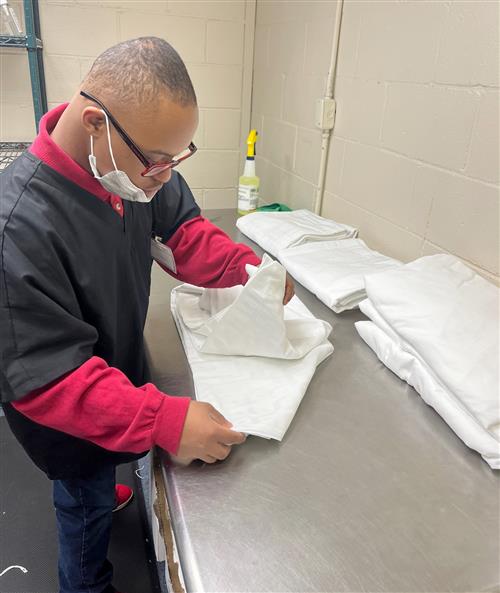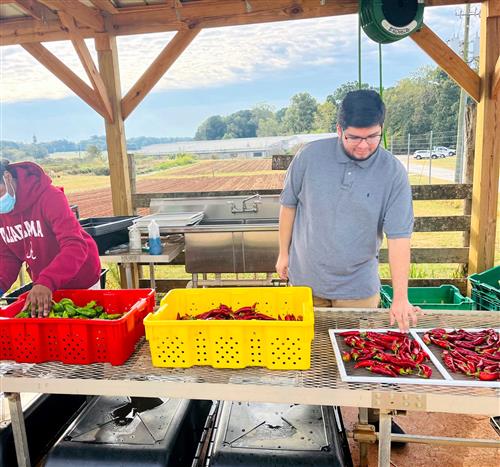- Clarke County School District │ Athens, GA
- Special Education
- Transition Resources for Students with Disabilities
Academics
Page Navigation
- Department Overview
- Career, Technical, and Agriculture Education (CTAE)
- Charter System
- Clarke Virtual Academy
- Data & Research
- Gifted and Advanced Programming
- Homeschool Information
- Information Support Services
- Instructional Technology
- Office of Assessment and Accountability
- Office of Early Learning
- Office of Federal Programs
- Office of Teaching and Learning
- Special Education
- Dyslexia Screening
Preparing for Life after High School
-
Planning for your child to transition out of high school can be a difficult process, but we are here to help you! In each of the dropdown menus on this page, you will find a collection of resources for parents, students, and educators wanting to know more about transition planning, services, and supports in our community for individuals with disabilities.
Understanding the Transition Planning Process
The term “transition” is used to explain the process of successful transitions of students with disabilities from school to post-secondary environments, which should be a primary focus of educators who work with these students. The purpose of transition planning is to assist students with disabilities to build the skills and support they need to successfully reach post-secondary goals. Transition is important in order to prepare students for change and ensure that appropriate steps are being taken to help students become more self-determined.
Although there are multiple components, the basis of transition planning includes:
- a results-oriented process which focuses on education and training needed to help students reach their long-term goals
- facilitating the movement from school to post-secondary activities.
- basing the plan on the student’s needs, taking into account preferences, interests, strengths, and skills.
In order to assist the student and family in successful transitions, a transition plan is written into the student's Individual Education Plan – beginning not later than when the child begins ninth grade or turns 16 (or younger if determined appropriate by the IEP Team) and updated annually thereafter. Transition plans require support from multiple sources so the child and his or her family can make choices, develop connections, and access services. The Transition plan in the IEP must include:- appropriate measurable postsecondary goals based upon age-appropriate transition assessments of the skills and interests related to training, education, employment, and, where appropriate, independent living skills.
- There are a wide range of transition assessments that can help students identify their interest areas and skills. A few options include CareerOneStop, O*Net Interest Profiler, and Truity Picture Assessment
- The transition services (including courses of study) assist the child in reaching their postsecondary goals. A course of study should focus on instructional and educational classes as well as experiences that will assist the child in preparing for transition from secondary education to postsecondary life. The course of study and activities should be meaningful to the child's future and should motivate the child to reach successful post-school outcomes.
- For service providers in our area, please see our Community Resources and Service Providers list.
Resources
-
Transition planning checklist for families of students working toward an alternate diploma
-
Transition Plan Tips and Guidance
-
Athens-area community resources and service providers
This sub-page was created to help families and students with disabilities navigate the variety of resources and services available in our community.
-
Upcoming Transition Events
CCSD's 2024 spring Transition Fair was a success with the help of more than 30 community resource providers and over 100 students in attendance from CCSD and Madison County Schools. Click HERE to view more photos and be on the lookout for more information about the 2025 CCSD Transition Fair!

-
CCSD Transition Program: Community Based Vocational Instruction
 It is our goal that our students receive on-the-job training while gaining appropriate independent, social, and work skills. To guide our students to this goal, students will receive these natural supports in the work environment with the guidance of a teacher or paraprofessional as well as a full-time coworker on the job site. Ultimately, this program is focused on allowing the students to increase their self-esteem, commitment to a work ethic, vocational soft skills, knowledge of community-based academics and economics, self-determination, and progress toward permanent employment.
It is our goal that our students receive on-the-job training while gaining appropriate independent, social, and work skills. To guide our students to this goal, students will receive these natural supports in the work environment with the guidance of a teacher or paraprofessional as well as a full-time coworker on the job site. Ultimately, this program is focused on allowing the students to increase their self-esteem, commitment to a work ethic, vocational soft skills, knowledge of community-based academics and economics, self-determination, and progress toward permanent employment.However, the benefits identified as a result of involvement in CBVI extend beyond the targeted students. We also want to see our community partners benefitting through camaraderie with the students, assistance with their work and an increased awareness of and appreciation for students with disabilities. It is our hope that this partnership with community businesses will result in an increased understanding of the abilities, talents, and needs of adolescents with disabilities.
Special thanks to our community partners in this endeavor!
- The University of Georgia
- Athens Area Diaper Bank
- Athens Area Humane Society
- Cali N Tito's
- Right Start Speech Therapy
- Piedmont University
Program description:
- The purpose of the program is to provide students with opportunities to acquire job skills in a variety of work settings and to teach the students skills necessary to become successful employees after high school while facilitating relationships throughout the Athens-Clarke County community.
- The job site supervisor and transition specialist will determine the best days and times that the job site will be utilized. Primary work tasks and the number of students will also be determined. Generally, students go to a job site one to three days for 1-2 hours per day.
- Students are matched to particular job sites based on their interests, abilities, and previous experiences.
- Students will attend a weekly Pre-Ets class led by a vocational rehabilitation provider.
- Students will attend a weekly transition class led by the CCSD transition specialist.
- During their last semester of high school, students will work with their VR case manager to be partnered with a supported employment agency. The agency will complete on the job training at the designated internship sites and prepare the student for a job placement once they exit high school.
Program requirements:
- The student is served in the adapted curriculum program.
- The student is in their last two years of high school.
- The student has not yet reached the maximum school age of 22 years old.

-
CCSD Parent Mentor Assistance
A parent mentor is the parent of a child with a disability who provides education and support to families with the long-term objective of giving all children a better chance to reach their potential.
CCSD parent mentor Jerolee Oschack's oldest son began receiving early intervention services in his school district at the age of 3. Ms. Oschack's goal is to nurture communication between parents and educators, ultimately leading to greater success and better outcomes for students with disabilities. As part of her work, she:
- provides training and workshops.
- listens to the parents’ concerns and help them understand the IEP process.
- can attend IEP meetings.
- is available to help parents apply for Medicaid waivers for their child and explain the paperwork.
- helps parents look for resources for transition.
Contact Ms. Oschack at 706-546-7721, Ext. 65727 or oschackj@clarke.k12.ga.us.

